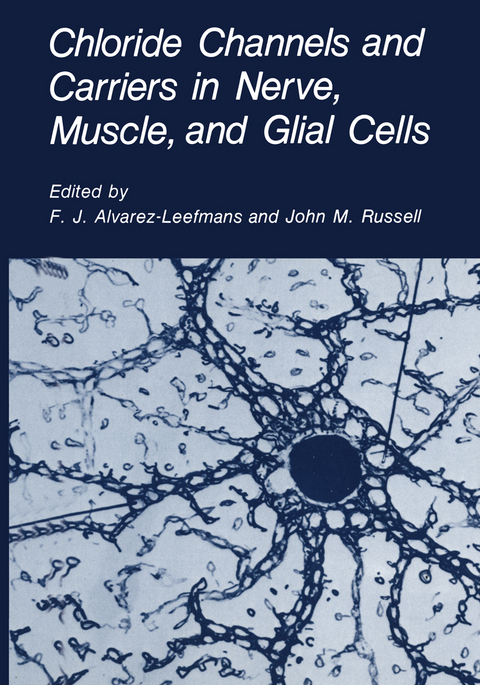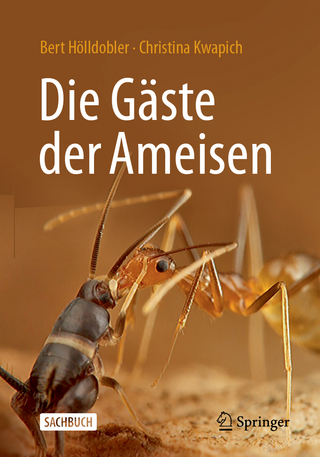
Chloride Channels and Carriers in Nerve, Muscle, and Glial Cells
Kluwer Academic/Plenum Publishers (Verlag)
978-0-306-43426-6 (ISBN)
This is a book about how Cl- crosses the cell membranes of nerve, muscle, and glial cells. Not so very many years ago, a pamphlet rather than book might have resulted from such an endeavor! One might ask why Cl-, the most abundant biological anion, attracted so little attention from investigators. The main reason was that the prevailing paradigm for cellular ion homeostasis in the 1950s and 1960s assigned Cl- a ther modynamically passive and unspecialized role. This view was particularly prominent among muscle and neuroscience investigators. In searching for reasons for such a negative (no pun intended) viewpoint, it seems to us that it stemmed from two key experimental observations. First, work on frog skeletal muscle showed that Cl- was passively distributed between the cytoplasm and the extracellular fluid. Second, work on Cl- transport in red blood cells confirmed that the Cl- transmembrane distribution was thermodynamically passive and, in addition, showed that Cl- crossed the mem brane extremely rapidly. This latter finding [for a long time interpreted as being the result of a high passive chloride electrical permeability(? CI)] made it quite likely that Cl- would remain at thermodynamic equilibrium. These two observations were gener alized and virtually all cells were thought to have a very high P Cl and a ther modynamically passive Cl- transmembrane distribution. These concepts can still be found in some physiology and neuroscience textbooks.
1. Methods for Measuring Chloride Transport across Nerve, Muscle, and Glial Cells.- 2. Principles of Cell Volume Regulation: Ion Flux Pathways and the Roles of Anions.- 3. Chloride Transport in the Squid Giant Axon.- 4. Intracellular Cl? Regulation and Synaptic Inhibition in Vertebrate and Invertebrate Neurons.- 5. Chloride Transport across Glial Membranes.- 6. Chloride Channels and Carriers in Cultured Glial Cells.- 7. Chloride Transport across the Sarcolemma of Vertebrate Smooth and Skeletal Muscle.- 8. Biophysical Aspects of GABA- and Glycine-Gated Cl? Channels in Mouse Cultured Spinal Neurons.- 9. GABA-Gated Cl? Currents and Their Regulation by Intracellular Free Ca2+.- 10. Pharmacology and Physiology of Cl? Conductances Activated by GABA in Cultured Mammalian Central Neurons.- 11. Acetylcholine-Activated Cl? Channels in Molluscan Nerve Cells.- 12. GABA-Activated Bicarbonate Conductance: Influence on EGABA and on Postsynaptic pH Regulation.- 13. Calcium-Dependent Chloride Currents in Vertebrate Central Neurons.- 14. Hyperpolarization-Activated Chloride Channels in Aplysia Neurons.- 15. The Voltage-Dependent Chloride Channel of Torpedo Electroplax: Intimations of Molecular Structure from Quirks of Single-Channel Function.- 16. Chloride Channels in Skeletal Muscle.
| Erscheint lt. Verlag | 31.5.1990 |
|---|---|
| Zusatzinfo | XVIII, 426 p. |
| Verlagsort | New York |
| Sprache | englisch |
| Maße | 178 x 254 mm |
| Themenwelt | Naturwissenschaften ► Biologie ► Humanbiologie |
| Naturwissenschaften ► Biologie ► Zoologie | |
| Naturwissenschaften ► Physik / Astronomie ► Angewandte Physik | |
| ISBN-10 | 0-306-43426-1 / 0306434261 |
| ISBN-13 | 978-0-306-43426-6 / 9780306434266 |
| Zustand | Neuware |
| Haben Sie eine Frage zum Produkt? |
aus dem Bereich


